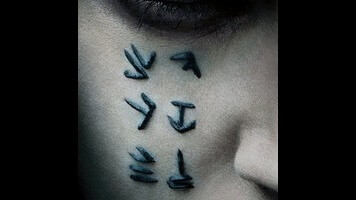Seeing Tom Cruise get his ass kicked again is one of The Mummy’s few pleasures

Tom Cruise tumbles around a nose-diving airplane, grunting impotently at gravity. His character, a rakish treasure-hunting soldier named Nick Morton, has accidentally unleashed a mummified Egyptian princess from her tomb, and the only reason he survives the crash—awakening in a translucent plastic body bag without a scratch on him—is the curse that now pumps through his veins. Throughout The Mummy, Nick will be knocked around like a rag doll, fend off swarms of vermin and underwater ghouls, have his bones crunched and his organs painfully shifted. This is business as usual, of course, for a Tom Cruise protagonist. Whether the aging heartthrob absorbs onscreen abuse purely for our perverse amusement or out of some deeper masochistic impulse is a question for the psychiatrists he doesn’t believe in. Either way, no living American movie star gets more mileage out of putting his characters—or, in the case of the stunt-driven Mission: Impossible movies, his own fragile human body—through the wringer. Self-punishment is the engine that drives him.
It’d be nice to report that Cruise is headlining some kind of supernatural cousin to the blessedly self-contained espionage series that transformed him into a foolhardy daredevil action icon—or better still, another Edge Of Tomorrow, only with bandaged ancient beasties instead of extraterrestrial ones. But though Christopher McQuarrie, who worked on both the former and the latter, is among its six credited screenwriters, The Mummy doesn’t so much bend to the auteuristic preoccupations of its star as fold them into its own dispiriting franchise game plan. Though occasionally enlivened by Cruise’s willingness to endure a nonstop gauntlet of humiliation, this is a modern blockbuster in many of the worst ways; it’s noisy but rarely exciting, heavy on whizzing and whirling special effects but light on wonder. For Universal, it’s also a fledgling stab at the Marvel business model, introducing a “Dark Universe” for its classic monsters to occupy. (Don’t hold your breath for a post-credits Luke Evans cameo—audience indifference to the Nolan-biting Dracula Untold staked that possibility.)
There are stray flashes of fun, of macabre inspiration. Last time Universal slid open the sarcophagus, it was for jokey throwback adventure serials starring Brendan Fraser and some now hideously outdated CGI critters. At the onset, this rebooted Mummy appears to be taking its cues from that knockoff Indiana Jones trilogy, transporting Cruise’s cocksure adventurer to the deserts of what was once called Mesopotamia, where he unearths the crypt of a treacherous pharaoh’s daughter (Star Trek Beyond’s Sofia Boutella) who was buried alive far from Egypt after using the dark arts to murder her family. Once the action shifts to an overcast London, The Mummy sporadically taps a vein of Gothic horror the last version of this property never approached; when Boutella’s vamping villainess first rises from the dead, creaking and croaking back to life, it’s in the boggy shadows of an overpass, infested with ravens. New Girl’s Jake Johnson also scores some chuckles as Nick’s dead sidekick, appearing to him in wisecracking visions, like Griffin Dunne in An American Werewolf In London.
But The Mummy is crippled by a failure of imagination. It unleashes an evil as old as the pyramids, only to spend a solid chunk of its middle act with the monster behind glass, imprisoned in the kind of nondescript, high-tech compound where the Avengers tend to convene during the slower stretches of a Marvel movie. Putting the villain in captivity is a trick co-writer, director, and shared-universe engineer Alex Kurtzman has pulled before, in both Star Trek Into Darkness and Mission: Impossible III. Kurtzman has spent so much time in the trenches of Hollywood franchise building that he seems to think only in blueprints; his storytelling is as airless as a sealed coffin. Too much of The Mummy is just characters spewing mythological tidbits at each other and hunting for MacGuffins. When Russell Crowe shows up as a bureaucratically empowered Dr. Jekyll, leader of a S.H.I.E.L.D.-like task force of government-payroll Van Helsings, the hammy pleasures of his (dual) performance are dimmed by the fact that he speaks almost exclusively in trailer lines and join-us-again-next-summer series maintenance. Kurtzman, directing his first blockbuster after writing a whole library of them, doesn’t fare much better behind the camera. His action scenes are mostly joyless blurs of digital murk.
That just leaves Cruise to save the day with his enthusiastic derring-do pratfalls, in bold defiance of his advancing years. Sadly, Nick Morton isn’t much of a character. The Mummy puts only half of an ass into the supposed battle between the selfish and selfless sides of his personality—a real problem, because that recycled Nathan Drake conflict is the only real tension between Nick and Jenny Halsey (Annabelle “Annabelle” Wallis), his exposition-machine love interest. (Cruise has more chemistry with the slinking, cadaverous enchantress trying to slip a blade into his torso, though there’s something troubling about a love triangle that presents a blonde British beauty as the redemptive romantic alternative to the deceptive, Egyptian “chick in a box” that Nick can’t get out of his head.) The Mummy ultimately makes Cruise’s commitment to gain through pain look like wasted effort. Get him back in a blockbuster worth the on-set accident insurance.